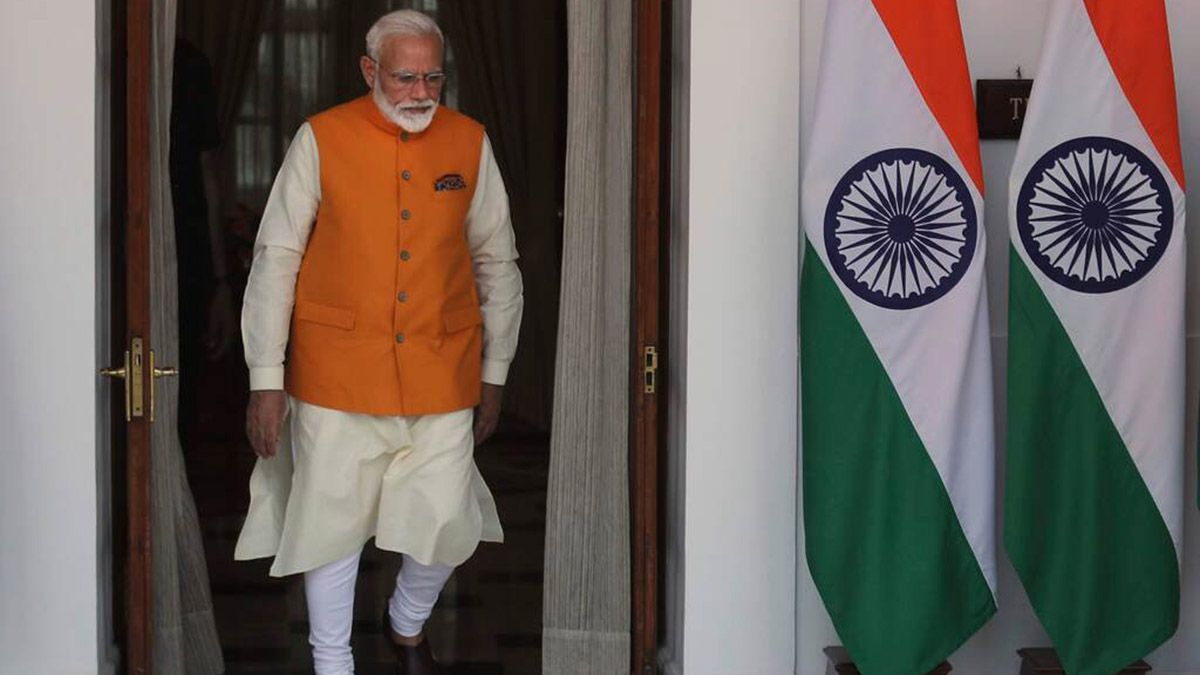The international landscape is no longer defined by clear battlelines and conventional military might alone. The 21st century has introduced a new, insidious form of conflict: hybrid threats. This multi-pronged strategy—encompassing state-sponsored terrorism, cyber-attacks on critical infrastructure, maritime aggression, and a new frontier of cognitive warfare—aims to destabilise nations from within, blurring the distinction between peace and war.
For the Global South, which often lacks the institutional resilience and technological safeguards of the West, these threats pose an existential challenge. In this volatile environment, the Russia-India-China (RIC) trilateral, long seen as dormant or fraught with internal tensions, is now being revisited as a potential vehicle for a new collective security framework. However, for such a framework to be truly effective and not just a geopolitical gambit, India’s unique position and leadership will be critical.
The recent push by Moscow and Beijing to revive the RIC dialogue is a clear signal of their intent to counter what they perceive as a Western-led security architecture. Russian Deputy Foreign Minister Andrei Rudenko, in a recent statement, emphasised Russia’s “genuine interest” in restarting the trilateral mechanism, an interest echoed by China’s Foreign Ministry spokesperson Lin Jian, who called it vital for “regional and global stability.” While this overture is driven by their own geopolitical priorities, it presents India with a strategic opportunity to shape the agenda in a manner that advances the Global South’s larger objectives.
India’s approach to security has long been rooted in a multidimensional strategy, a stark contrast to the purely kinetic responses often favoured by the West. New Delhi’s “whole-of-government” approach to hybrid threats, as outlined in its national security strategies, recognises that a cyber-attack on a power grid (like the alleged Chinese malware attack on Mumbai’s grid in 2020) is as much a national security threat as a terrorist incursion. India’s defence modernisation and the creation of specialised bodies like the Defence AI Council (DAIC) are a testament to its recognition of this new reality. This is precisely the kind of expertise and experience India can bring to the RIC table, shifting the conversation from a mere anti-Western bloc to a substantive forum for technical cooperation.
The focus must be on tangible, threat-specific collaboration. While RIC has a history of discussing counterterrorism, the focus must move beyond general condemnations to actionable intelligence sharing and capacity building. For the Global South, the threat of radicalised non-state actors exploiting weak governance is a constant menace. India, with its extensive experience in counterinsurgency and counter-radicalization, can lead the charge in establishing a joint RIC counterterrorism doctrine. This framework could include shared threat assessments, joint training exercises, and a mechanism to block the financing and propaganda of terrorist groups across digital platforms—a domain where cognitive warfare and terrorism now intersect.
Impact Shorts
More ShortsThe RIC countries are important participants in the Indian Ocean Region (IOR), which serves as the world economy’s circulatory system. China’s growing presence in the IOR, its debt-heavy “Belt and Road Initiative” (BRI), and its aggressive posturing in the South China Sea remain points of contention. This is where India’s role as a “first responder” and net security provider in the IOR, underpinned by its initiatives like SAGAR (Security and Growth for All in the Region) and the more recent MAHASAGAR, is crucial.
For an RIC maritime security framework to be credible, it must be based on a commitment to international law and the freedom of navigation. India should leverage its position to ensure that any trilateral cooperation on piracy, illegal fishing, and maritime terrorism does not legitimise aggressive unilateral claims but instead upholds a rules-based order that benefits all coastal states of the Global South.
Arguably the most critical and complex frontier, both Russia and China have been accused of employing sophisticated cyber and cognitive warfare tactics, from electoral interference to disinformation campaigns aimed at sowing internal discord. India, which has also been a victim of such campaigns, is developing its own cyber resilience and is uniquely positioned to understand the dual-use nature of these technologies. Instead of a framework to weaponise these capabilities, India must champion a code of conduct that promotes a secure, open, and resilient cyberspace.
This involves pushing for shared protocols for reporting cyber-attacks, developing a common defence against state-sponsored disinformation, and creating a joint technical working group to protect the digital infrastructure of developing nations. This would not only enhance regional security but also provide a valuable resource for other Global South countries struggling with these threats.
It goes without saying that the deep mistrust between India and China, especially in the wake of the military standoff in eastern Ladakh, is the elephant in the room. The success of a revived RIC hinges on a credible de-escalation of border tensions and a genuine commitment to dialogue. Without this, any talk of a collective security framework will be dismissed as hollow rhetoric, a mere façade for Great Power competition. India’s role is not to be a junior partner in a Russo-Chinese-led bloc but to act as a crucial hinge—a bridge between competing powers and a champion for the Global South.
By pushing for a security framework that is multilateral, rules-based, and focused on specific, non-traditional threats, New Delhi can ensure that the RIC serves a constructive purpose. It can transform this grouping from a tool of geopolitical realignment into a meaningful platform for collective action, safeguarding the interests and stability of the very nations that are most vulnerable in this age of hybrid threats.
Subhalakshmi Brahma is Researcher at JK Policy Institute, Specialising in geopolitics and strategic domains. Views expressed in the above piece are personal and solely those of the author. They do not necessarily reflect Firstpost’s views.
)